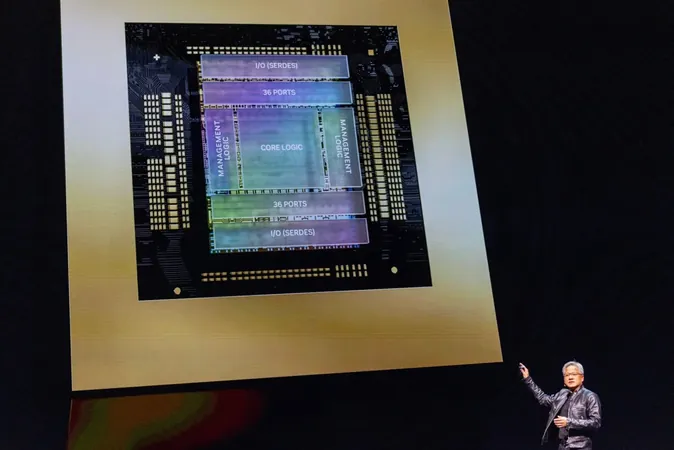
US Considers Export Limits on AI Chips to Protect National Security
2024-10-15
Author: Wai
US Considers Export Limits on AI Chips to Protect National Security
In a significant move directed at safeguarding national security, Biden administration officials are deliberating a proposal to impose caps on the sale of advanced AI chips from major US firms like Nvidia and AMD to specific countries. This strategy aims to restrict the AI capabilities of certain nations, primarily focusing on those in the Persian Gulf region, which have shown an increasing interest in establishing AI data centers.
Discussions surrounding these country-specific export caps are reportedly in the early stages but have gained momentum in recent weeks. Government officials are particularly concerned about the growing demand for AI resources in wealthier Gulf states such as the United Arab Emirates and Saudi Arabia. These nations possess the financial capacity to develop their AI infrastructure, prompting the administration to reassess its export licensing framework. Recently announced regulations initiated a more streamlined process for AI chip shipments to these data centers, with more guidelines expected soon.
This move represents a tightening of previous restrictions which primarily targeted China amid worries that sensitive technologies might be misappropriated or redirected towards undesirable entities. The Biden administration already has limitations in place for the sale of AI chips to over 40 nations across the Middle East, Africa, and Asia, signaling a broader intent to monitor and control international distributions of AI technology more rigorously.
Officials have come to view semiconductor export licenses as a strategic diplomatic tool, using them to encourage companies to manage their connections with China in exchange for access to US technological advancements. This complex geopolitical dynamic raises questions about how countries could potentially exploit these advanced technologies, especially those with sophisticated surveillance capabilities. Conversations at various forums highlight the contrasting implications for human rights and US intelligence operations globally.
Amid these developments, Nvidia and other industry leaders are likely considering how they might adapt, especially since similar restrictions in the past prompted Nvidia to retool its technology offerings to maintain its market position in China. Should the US pursue country-specific caps, implementing and enforcing these restrictions could present substantial practical challenges and test the resilience of US international relations as President Biden enters the final stages of his first term.
Meanwhile, as nations strive for self-sufficiency in AI, the demand for high-performing processors like those offered by Nvidia continues to surge. Nvidia CEO Jensen Huang has noted this global pursuit of "sovereign AI" that appeals to both emerging and established economies. However, as countries like China work to enhance their semiconductor development capabilities, US officials remain concerned that losing dominance in AI tech could challenge the US's influence in shaping the future landscape of global AI development.
As this situation evolves, industry players and international stakeholders will watch closely. The potential for significant shifts in how AI technology is transferred and utilized globally is steering a pivotal moment in the geopolitical narrative surrounding technology and national security.






 Brasil (PT)
Brasil (PT)
 Canada (EN)
Canada (EN)
 Chile (ES)
Chile (ES)
 España (ES)
España (ES)
 France (FR)
France (FR)
 Hong Kong (EN)
Hong Kong (EN)
 Italia (IT)
Italia (IT)
 日本 (JA)
日本 (JA)
 Magyarország (HU)
Magyarország (HU)
 Norge (NO)
Norge (NO)
 Polska (PL)
Polska (PL)
 Schweiz (DE)
Schweiz (DE)
 Singapore (EN)
Singapore (EN)
 Sverige (SV)
Sverige (SV)
 Suomi (FI)
Suomi (FI)
 Türkiye (TR)
Türkiye (TR)